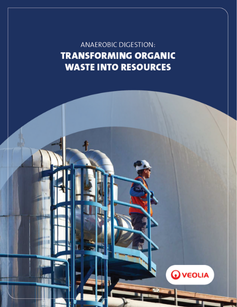Ontario's municipalities are at a critical environmental crossroads, facing complex challenges that demand immediate attention and innovative solutions. The convergence of water quality concerns, particularly emerging contaminants like PFAS and micro-pollutants, alongside waste management issues and aging infrastructure, presents an unprecedented challenge for local governments.
The financial implications of these environmental challenges are particularly striking when viewed through the lens of affordable housing development. The fact that water, wastewater and waste management infrastructure accounts for half of the estimated $107,000 per-unit development cost underscores the intricate relationship between environmental infrastructure and housing affordability. This creates a difficult balancing act for municipalities striving to meet both environmental and housing needs. Municipal leaders attending the Association of Municipalities of Ontario conference in Ottawa from (August 17-20, 2025) must recognize that these challenges, while daunting, also present opportunities for innovation and transformation. The current situation calls for a paradigm shift in how we approach environmental infrastructure; we need to move from reactive maintenance to proactive, sustainable solutions. This includes embracing new technologies, implementing smart infrastructure systems and adopting circular economy principles.

A Collaborative Approach to Project Delivery
Collaboration is key to addressing these challenges effectively. The gathering of stakeholders in Ottawa represents more than just a conference; it's a crucial platform for knowledge exchange and partnership building. By bringing together diverse perspectives from government, industry, academia and community groups, we can develop comprehensive solutions that address both immediate needs and long-term sustainability goals.
As a means of breaking from past approaches, the role of private sector partnerships, such as those offered by water and environmental service providers, cannot be understated. These partnerships can bring expertise, technology and resources to help municipalities navigate complex environmental challenges. Well-structured partnerships can accelerate delivery timelines, leverage innovation, improve service quality and share risk in ways that protect the public interest. However, it is essential that such solutions are tailored to each community’s unique circumstances, considering local environmental conditions, economic realities and social needs.
The path forward will require more than incremental policy adjustments. It demands bold leadership, new delivery models and a willingness to break down silos between housing,
infrastructure and environmental policy. Municipalities must move beyond short-term fixes and lowest bid contracts and embrace comprehensive strategies that address both current challenges and future needs. This includes:
- Investing in preventive maintenance
- Adopting new technologies
- Implementing collaborative contracting principles in support of efficient alternative project delivery scenarios
- Supporting and implementing policies that promote sustainable development
Environmental goals and housing targets cannot be treated separately—their interconnection must be recognized and addressed through unified strategies.
Looking forward, municipalities must prioritize investments in resilient environmental infrastructure while balancing fiscal constraints. This includes exploring innovative financing mechanisms, leveraging government funding programs and considering public-private partnerships. Additionally, municipalities should focus on integrating green infrastructure solutions that can provide multiple benefits, from improved water management to enhanced community spaces.

Innovative Financing Solutions and Digital Transformation
Some municipalities are exploring creative financing mechanisms like green bonds and environmental impact bonds to fund infrastructure improvements. For instance, the City of Toronto has issued multiple green bonds since its first in 2018, raising at least $400 million, including a $300 million issue in November 2022 and a $100 million reopening in September 2023. Additionally, digital transformation through smart city technologies is showing promise: municipal programs like Guelph’s Water Smart Business offer free water-use reviews and rebates of up to $10,000 to support efficiency upgrades, although specific IoT-based real-time savings data isn’t publicly reported.
The Path Forward
The path forward requires bold leadership and a commitment to long-term planning. Municipalities must move beyond short-term fixes and lowest bid contracts and embrace comprehensive strategies that address both current challenges and future needs. This includes investing in preventive maintenance, adopting new technologies and implementing policies that promote sustainable development. It also means adopting new funding models that will enable creative ideas to become reality.
Ultimately, the success of municipal environmental initiatives will depend on strong partnerships, community engagement and a shared commitment to sustainability. By working together and sharing best practices, Ontario's municipalities can build more resilient, sustainable and affordable communities for future generations.



